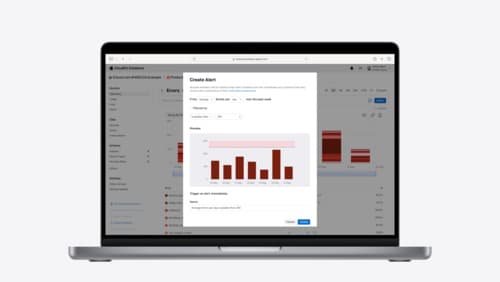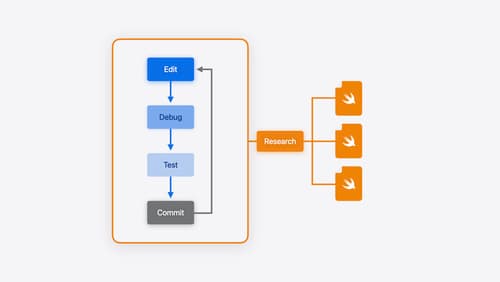Unified logging updates
Asked on 2024-08-09
1 search
Unified logging updates were discussed in several sessions at WWDC 2024. Here are some key points:
-
Structured Logging with Swift:
- Swift log supports structured logging by adding metadata to log messages, which provides additional context when troubleshooting problems. This was highlighted in the session Explore the Swift on Server ecosystem.
-
OSLog in Xcode:
- Instead of using print statements, it is recommended to switch to OSLog, which provides a debug level for each message. This allows filtering by text or message type and includes metadata such as error info, debug timestamp, and library. This was discussed in the session Xcode essentials.
-
Debugging with OSLog:
- OSLog allows you to jump directly to the line in your source where the log message is coming from, which is not possible with print statements. This feature was also mentioned in the session Xcode essentials.
-
CloudKit Console Logging:
- The CloudKit Console allows for detailed exploration of logs, including customizable table views and exporting logs for historical comparison. This was covered in the session Use CloudKit Console to monitor and optimize database activity.
Relevant Sessions
- Explore the Swift on Server ecosystem
- Xcode essentials
- Use CloudKit Console to monitor and optimize database activity
These sessions provide a comprehensive overview of the updates and best practices for unified logging in the latest Apple development environment.

Use CloudKit Console to monitor and optimize database activity
Discover the new observability features in CloudKit Console. Learn how to use Telemetry and Logging to troubleshoot and optimize your app. Find out how to set up alerts to monitor your application’s behavior and notifications to stay on top of the container events that are most important to you. To get the most out of this session, we recommend being familiar with CloudKit containers.

Explore the Swift on Server ecosystem
Swift is a great language for writing your server applications, and powers critical services across Apple’s cloud products. We’ll explore tooling, delve into the Swift server package ecosystem, and demonstrate how to interact with databases and add observability to applications.

Xcode essentials
Edit, debug, commit, repeat. Explore the suite of tools in Xcode that help you iterate quickly when developing apps. Discover tips and tricks to help optimize and boost your development workflow.
